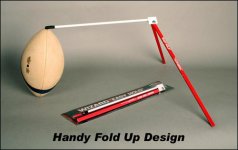For me, substitutes are not allowed to play the game. This is why we YC them if they deliberately prevent a QTI from taking place.
[LAWS](c) If a ... substitute joins the match without the referee’s permission, and the referee believes the player did so to help that player’s team ..., the referee penalises the player for misconduct.
Sanction: A penalty kick is awarded at the place where play would restart.[/LAWS]
Scenario: penalty kick at goal from the 10m line on a windy day. Taking the kick at goal is part of the play in the match; time is on. The act of "placing" the ball (i.e. fingertip on point until a fraction of a second before the kick) is as much a part of the play as is the kick. If that function is necessary and is performed by a player, then with one player on each touchline in case of a miss and subsequent kick for touch, and with one player midfield in case of a miss and long punt downfield, then the other eight players can chase up the kick.
If the substitute is allowed to place the ball, then there are nine players chasing the kick - an advantage over a mere eight. The substitute has clcearly taken part in the game; he did so to help his team (the chances of scoring are much higher if the ball is placed); the referee must not collude in this disadvantaging of the non-kicking side, so we hope he has not given permission for this to take place. Given all that, the referee must penalise the substitute for misconduct.
Much better all round, though, to insist upon the substitute staying well clear.





